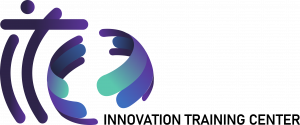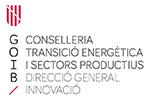Projects
S4S will develop an innovative methodology to improve educational leadership competence
among teachers, eliminate disparities and promote the digitalization of education.
El objetivo principal del proyecto-idea es el desarrollo de un equipo compacto, autónomo, sencillo y de fácil manejo y operación para realizar batimetrías, monitorización ambiental y vigilancia del puerto, permitiendo a cambiar de forma modular los sensores de misión en función de la tarea a realizar.
El proyecto CHARLIE tiene como objetivo desafiar el sesgo en los grandes datos utilizados para la IA y el aprendizaje automático al brindar un mayor nivel de conciencia sobre el impacto negativo de la falta de un enfoque crítico y ético en la actual oferta educativa en TIC.
VEDA intends to provide new educational opportunities to women across the EU in order to help them expand their existing knowledge and acquire new skills, in order to gain access to the contemporary labour market.
COPE intends to address the negative effects of conflict and COVID-19 crisis on youth’s mental health by the strengthening of key protective factors via digitized peer support through art.
ETHIKAS aims at supporting migrant women social and sustainable entrepreneurship via human centred approaches.
El objetivo de Circular FP es mejorar la capacitación e incorporación del alumnado de formación profesional al entorno laboral de la economía circular a través del desarrollo de materiales y metodología innovadores involucrando alumnos y profesores en el proceso de co-diseño y co-creación.
FENIX aims to contribute to fostering the resilience of European enterprises and their workers, through the development of an innovative gamified training experience, a guideline to support the implementation of systemic Resilience practices within enterprises and an online crash course on Adaptative Management.
UNIHEAL intends to equip and res-skill health professionals towards digital health.
THINKIDS is proposing to design and test a practical “authentic learning approach” based on the EU key competences for lifelong learning and the UN Sustainable Development Goals to support educators and children (ages from 3 to 11) find coherence between what they think, what they want or feel, and what they do.
Media education for all: digital citizens criticise and combat fake news
FULL STEAM AHEAD proposes a de-gendered approach of STEM as a teaching subject to make it more attractive for both boys and girls.
The purpose of the project is to transform the profile of young digital natives (generally those between 18 and 29 years of age) from a set of digital skills specific to their lifestyle.
Collaboration in the development of a towed platform for underwater vision. It has a depth sensor, temperature, distance to the bottom and navigation camera.
The EMME project aims to promote and foster the integration of migrants in the labour market, through the active involvement of companies and develops an approach based on the activity of local networks composed by key actors in the field.
Over the past years, the issue of “basic skills” has gained particular attention in most European countries. Of particular concern is what is generally called ‘functional literacy’ and ‘functional numeracy’. One of every four adults in Europe fails to reach minimum literacy levels for coping with everyday life.
KNOW-HUBs introduces the concept of “3M: Meeting point, Mediator and Motor” for adult education centres, coined by Prof. Gunnar Grepperud and Prof. Terje Thomsen (Grepperud, Thomsen, 2002) so as to become knowledge and innovation hubs.
A strong political consensus has emerged in Europe on the importance of inclusive education and ensuring children with special educational needs (SEN).
Social Responsibility is something that most of the people relate to the Corporate field. However the Public sector should be, by nature, more interested in the consequences of the actions of an organization (either public or private) on the society.
BoostIng Digital skills TO promote entrepreneurship for ARTists and cultural heritage sectors
Using Augmented Reality Technology and Simulation-Based Training to Foster Green Economy
The VETREALITY Project is aimed at preparing Teachers and Trainers to use digital and innovative tools, such as the VIRTUAL REALITY (VR) in the frame of Virtual Learning Environments (VLE) for fostering the inclusion of SEN students in initial VET by facilitating their access to WBL at local and
international/Mobility level.
BEYOND INCLUSION aims at fighting social exclusion by promoting employment opportunities in SMEs for persons with disabilities on the ground of factors such as personal growth and self-realisation, rather than appropriateness to disability and policy measures/legislation
Everyone should be aware of the damage we are doing to our planet: what happens in one part of our planet is affecting the whole world.
ELVE intends to raise the awareness and share materials focusing on the importance of environmental and values education starting from early childhood as key to build a better world to live in.
The DISCO VET project aims to provide a common understanding and terminology regarding credentials, micro-credentials, Open badges, EDCI in national and the EU level to develop:
• a displayer platform, focused on the online credentials of the European VET scene, providing services for all stakeholders (earners, issuers, and validators) and a
• 30 hours course on open badges and digitally signed credentials.
Open up targets formal and non-formal education professionals working in mainstream institutions (i.e. educators: teachers, trainers, professors, tutors, mentors and coaches; youth workers, educational leaders: school heads, rectors, department heads; and support staff: teaching assistants) that are facing the challenge to include an increasing number of children and teenagers with visual and hearing impairments (our end-beneficiairies).
Sustainable transition(s) (covering social, economic, political, and educational dimensions) is a world-wide challenge. Since this transition concerns all dimension of our modern life, the answer to these challenges should be holistic and global. It’s crucial “to understand” before “acting”, that’s why we think that sustainable transition(s) is also a question of education.
The COMP-UP project is aimed at increasing the motivation of low-qualified adult learners to take part in education and improve their literacy, numeracy and digital skills.
The project aims to support European SME’s (small and medium-sized enterprises) compliance procedures in respect to the EU’s General Data Protection Regulation (GDPR)
InTraRed aims to foster the innovation management within SMEs placing particular emphasis on building new learning partnerships between the worlds of work and VET provision as fundamental elements able to create key educational bridges to reduce fragmentation in the innovation management process.
PEEC overall aim is to address peace education as a means to promote equality, diversity and inclusion and further prevent from violence and bullying in early childhood education through the development of a further professional training course of ECEC teachers and educators
The SIMPLE project is focused on the psychological wellbeing and the social integration of migrants traumatized by the travel and the human trafficking, with specific attention for women. Activities planned in SIMPLE respond to the Community guidelines defined by the EU Directives on minimum standards in the welcoming of Asylum Seekers. This Directive recommends to EU countries the protection of the victims of tortures, rapes and other severe forms of psychological, physical or sexual violence.
IPPI aims at integrating the current training activity regarding Intellectual Property focusing on innovation and entrepreneurship with innovative tools specifically developed for teenagers 13-18 in order to learn to appreciate the role of IP protection as part of the business idea development process and of our common European standards both as entrepreneurs as well as consumers.
The DUCK project aims to develop online training modules on Data Understanding and Communication to be implemented in CPD, VET and HE environments to develop the skills of teachers and trainers.
Europe is facing as a society some of its major challenges since the end of the WWII. For many European countries, the cultural diversity is a key issue.
El objetivo del proyecto es compartir las buenas prácticas entre cuatro Estados miembroscon el fin de promover el conocimiento y los conocimientos técnicos de cada país, derivados de proyectos de educación para el emprendimiento juvenil.
El objetivo de Volutoring es fomentar la inclusión social de los migrantes adultos poco calificados en sus países receptores mediante el desarrollo de habilidades básicas de alfabetización, aritmética y digitales gracias a la provisión de formación online gratuita y de calidad destinada a la creación y mejora de capacidades de formación de tutores voluntarios.
El reciente panorama europeo marcado por una serie de crisis simultáneas: refugiados, multiculturalismo, desarrollo económico desigual en momentos de bajo crecimiento económico han llevado a este consorcio a creer firmemente en la ética y en los valores.
El desempleo de larga duración y la marginación de los adultos en el mercado laboral siguen siendo una gran preocupación en la Unión Europea. Según las últimas estadísticas de Eurostat, aproximadamente casi 18 millones de hombres y mujeres se encontraban en situación de desempleo.
Este proyecto intenta encontrar la mejor forma de romper el techo de cristal para facilitar el acceso a un aprendizaje de habilidades digitales de calidad.
La competitividad, la innovación y la creación de empleo en toda la UE se ven cada vez más impulsadas por el uso de las nuevas tecnologías de la información y la comunicación (TIC).
Social UP es un proyecto cofinanciado por la UE (2016-2018) en el marco del programa Erasmus+ con el objetivo de cultivar el design thinking en las empresas sociales.
El objetivo es reclutar jóvenes que actúen como «responsables del cambio» en sus comunidades para concebir y llevar a cabo estrategias locales de desarrollo socioeconómico, utilizando espacios en desuso.
El objetivo del proyecto es aumentar la competitividad de la industria turística europea, con la mejora de las cualificaciones y la profesionalización de los servicios turísticos.
El futuro presenta nuevos desafíos tanto para profesores como para formadores de EFP, que implica nuevas pedagogías, aseguramiento de la calidad, gestión y tareas administrativas.
Promueve la incorporación de la Responsabilidad Social Universitaria en los programas y las sinergias entre la comunidad Universitaria y otras partes interesadas.
En los últimos años, la importancia de la alta calidad en la educación y el cuidado de los niños pequeños se ha reconocido cada vez más y se refleja en un alto número de estrategias europeas.
El objetivo del proyecto es desarrollar un programa que va a capacitar a los estudiantes, maestros, personal escolar, y los padres para luchar contra el bullying.



